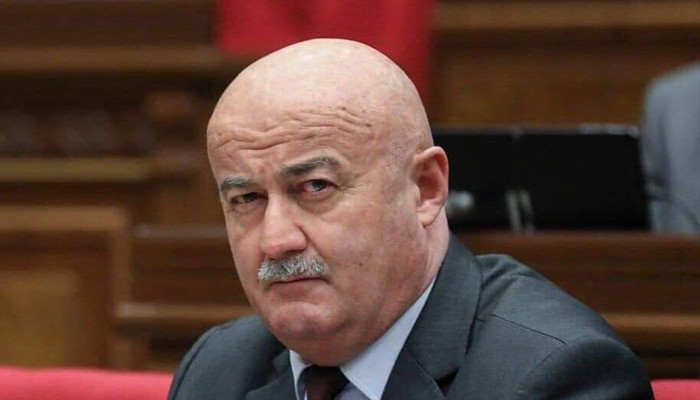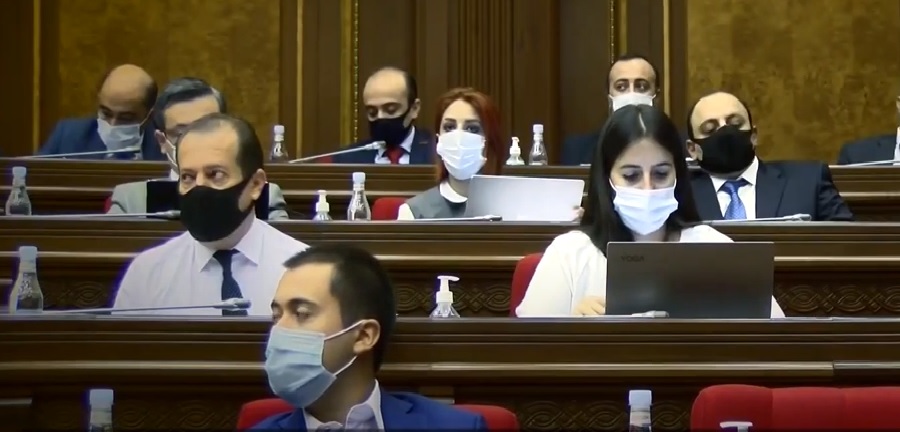It seems that in the near future a TV viewer will feel an even greater dominance of advertising on air of Armenian TV channels. On May 26, the National Assembly adopted the package of amendments and supplements to the RA Laws “On Television and Radio” and “On Advertisement,” as a result of which the ban on the so-called “umbrella” (hidden) advertisement was abolished, the maximum allowed volume of advertisement within one hour of TV air increased from 10 to 14 minutes.
It is not the first time that the draft laws referring to the broadcasting field have been adopted in an emergency rush: the first reading took place on May 25, and on the following day the draft law was adopted in the second reading. And again it was done without any discussion with public organizations; though previously an agreement had been reached with the representatives of the ruling elite that no draft law on media would be passed without joint review of journalistic organizations.
Perhaps, this would not be recalled if the parliament adopted legislative changes taking into account the demands of TV audience or public survey results showing that the current level of advertisement does not cause rejection of the majority of citizens. Meanwhile, according to our observations and monitoring results of partner organizations, the Armenian TV channels (both public and the majority of private ones) are evidently exceeding the norms envisaged by law, and the audience is greatly bored with both the content and volume of broadcast advertisements.
Under such conditions, the adoption of the draft laws, factually, providing TV companies with carte blanch of putting up advertisements on air means that the public opinion and audience interest were fully neglected for the sake of commercial profit. It is clear that political oligarchic parties, who support the so-called “high rating” channels, could lobby similar changes, as these channels, in fact, allowed them broadcasting more advertisements than envisaged by law.
In this sense, the adopted amendments only legitimized what existed de facto. It means that the law once again fits the stakeholders’ acting manner. Are their growing appetites satisfied? The current attitude towards the requirements of the law casts doubt on this. There is no guarantee that some TV channels would not step over 14-minute limit without any punishment, as in previous years.
However, the increase of advertisements on air could be taken easier, if it somehow had positive impact on the content of TV programs, their quality and development of pluralism. But as it does not happen, the financial profit of TV companies becomes an end in itself. With such development the significant part of the audience of these “high rating” TV channels will avert from them in search of new alternatives. Though the choice is not big … Not all citizens of the country can afford buying satellites or install cable networks. The majority of TV companies that have obtained broadcasting licenses offer a few interesting programs …
By the way, experts of international organizations, such as the OSCE and the Council of Europe have repeatedly talked about the danger of over-commercialization to the detriment of the humanitarian aspects of activities of TV companies, the reduction of the level of pluralism and freedom of expression. However, these recommendations alongside with many others were also neglected by the authorities of the country.
The adopted package evokes perplexity also because of the fact that the task group formed on the initiative of the head of the state and working on the improvement of the RA Law “On Television and Radio” under the patronage of the Human Rights Advocate has not yet finished the preparation of the draft law, but the parliament goes on making changes in its own way. The authorities spoil the legislation more quickly than make attempts to rescue it.
Ashot MELIKYAN
CPFE Chairman








